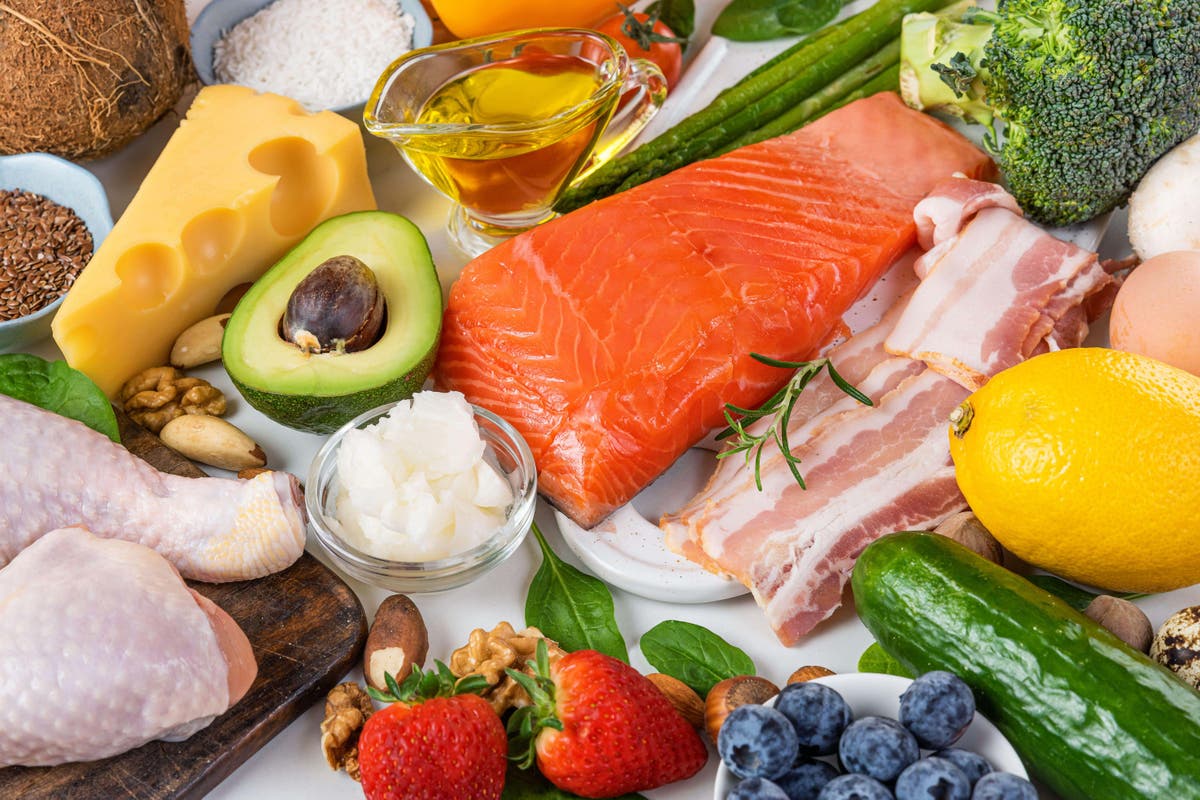
Your support helps us to tell the story
From reproductive rights to climate change to Big Tech, The Independent is on the ground when the story is developing. Whether it’s investigating the financials of Elon Musk’s pro-Trump PAC or producing our latest documentary, ‘The A Word’, which shines a light on the American women fighting for reproductive rights, we know how important it is to parse out the facts from the messaging.
At such a critical moment in US history, we need reporters on the ground. Your donation allows us to keep sending journalists to speak to both sides of the story.
The Independent is trusted by Americans across the entire political spectrum. And unlike many other quality news outlets, we choose not to lock Americans out of our reporting and analysis with paywalls. We believe quality journalism should be available to everyone, paid for by those who can afford it.
Your support makes all the difference.
A new year brings with it new healthy goals.
As many will sign up for gyms, commit to running 5k a day or even take part in dry January, it’s our diets that we need to have a look at.
Healthier eating shouldn’t be seen as a habit, but often is. And in a world of social media, influencers and tons of readily available data and information – it is becoming increasingly difficult to know what’s true when it comes to nutrition.
Here, Dr Carrie Ruxton, dietician and advisor to the General Mills fibre campaign, debunks some healthy eating myths to make your life easier this January.
Myth 1: You need to eat breakfast as soon as you wake up
A narrative almost everyone grew up with is breakfast is the most important meal but you don’t actually need to eat as soon as you wake up, said Ruxton.
Although breakfast does provide an opportunity to fuel your day, some research does not conclusively prove that it is the most important.
“Breakfast foods like whole grain breakfast cereals are amazing, and they’re good for appetite,” she said.
However, she doesn’t eat first thing in the morning and instead pushes her first meal to after 11am to align with intermittent fasting (when you only eat during a certain window of the day).
Myth 2: Fibre is only for regular bowel movement
Evidence shows that fibre has got a lot of health benefits, and not just for regular bowel movements: it helps to control your blood sugar.
“It also reduces your blood cholesterol and reduces your risk of heart disease and diabetes,” Ruxton confirmed. “Fibre promotes healthy gut microbiota. That’s the bacteria that live in your gut, and that itself can improve your immune function, mood, brain health and also increase calcium absorption in your gut. So you end up having stronger bones.”
Foods such as whole grains, beans, pulses and snacks with fibre in them such as nuts are all recommended.
Myth 3: Smoothies make your blood sugar spike
Social media has seen a trend people wearing glucose monitors in the arms, saying their blood sugar spiked after drinking smoothies. But Ruxton says not to believe everything you see.
One Soka University of America study found that when people drank blended fruit, in comparison to eating it whole, their blood sugars went up less after blending.
Ruxton says this could be due to the tiny seeds in berries. “When you blend those, it actually slows down the absorption of the sugar in the fruit and you end up with having a lower blood sugar level.”
She also believes that glucose monitors aren’t accurate enough and they may “overexaggerate blood sugars”. A January 2025 study has backed this up, finding that some monitors exaggerated blood sugars by more than three times in comparison to a finger prick blood sampling.
Myth 4: You shouldn’t drink tea before bed
Lots of advice says to drink your last cup of tea at least 6 hours before bedtime as it’s too stimulating, but Ruxton says this may not be true.
With less than half of the caffeine you would find in a cup of coffee, tea also contains an amino acid called L-Theanine, she notes.
“The combination of L-Theanine and caffeine actually relax people.”
A 2023 study found that people who had a regular black tea or a herbal tea in the evening, actually sleep much better.
“That’s because of the L-Theanine and also the polyphenols which are plant compounds that help us relax and give a more calm mood,” Ruxton explained.
Myth 5: Carbs are bad for you
Carbs are not the enemy. They “actually have got one of the lowest calorie levels per gram per serving. You get [approaximately] four calories per gram”, Ruxton said.
“You get nine calories per gram of fat and seven in alcohol, so carbs are actually low calorie density.”
According to Ruxton the demonisation of carbs has more to do with what people are pairing with their chosen carb. For example, it’s not the burger bun that’s increasing your calories – it could be the cheese, sauce and added toppings.
